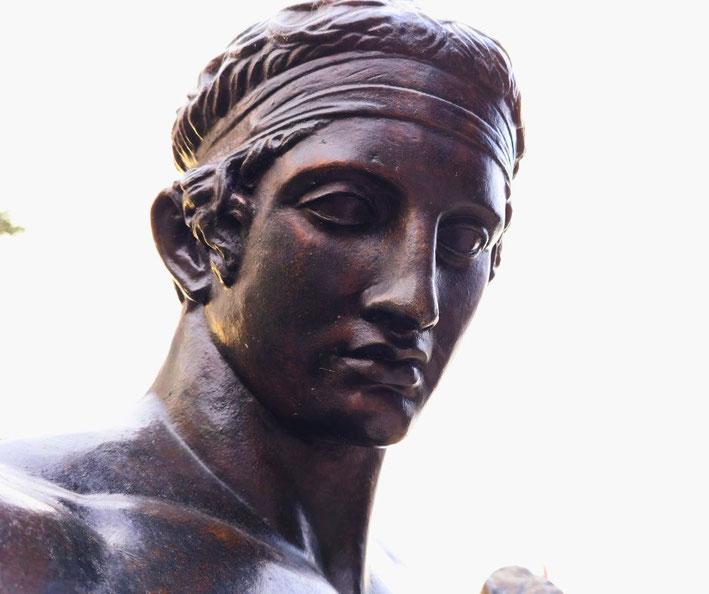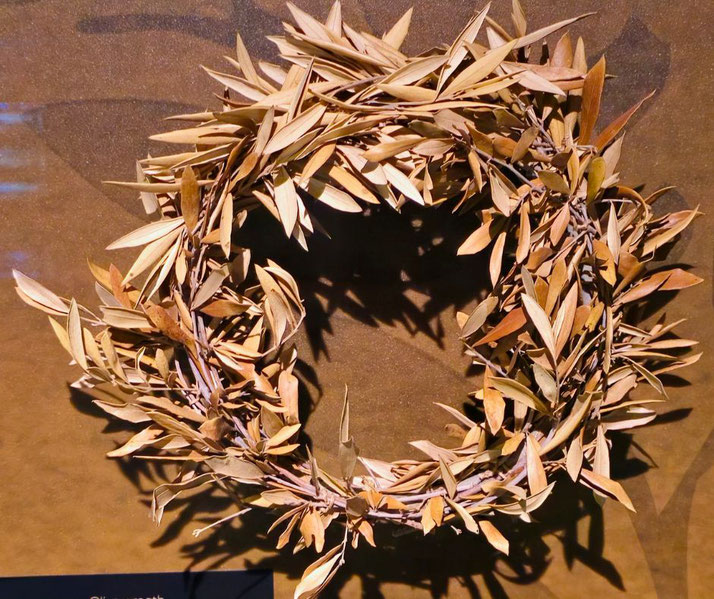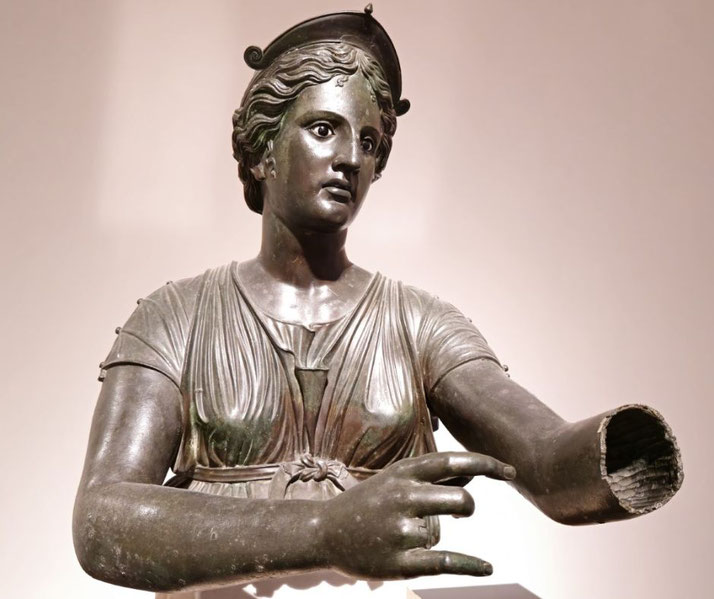What were the ancient Olympics like?

Today, the Olympic Games is one of the top sporting events in the world. However, the original Olympics began long ago in ancient Greece.
The Greeks loved sport, just like we do, and even enjoyed visits to their own versions of the gym.
The Olympic Games did not start out as just a sporting event but began in the 8th century BC as a religious ceremony for the god Zeus.
There was only one event at the first games in 776 BC, but it quickly became very popular.
Later, the games took place once every four years, and thousands of people from across the ancient Greek world went to the city of Olympia, in the Peloponnese region of Greece, to either watch or take part.
This four-year period was known as an Olympiad.

Preparing for the Games
Besides their religious and athletic importance, the Olympic Games were also an important political and social gathering.
In fact, leaders from different city-states held meetings during the Games, and athletic performance were meant to show off a city-state's status.
Competitors came from all corners of the Greek world to join in, and, in turn, the Olympic Games became a symbol of unity among the various city-states of Greece.
For this purpose, they declared a special religious truce called the Olympic Truce to encourage people to join the ceremony and sporting events.
This meant that, during the Olympic Games, all Greek city-states agreed not to be at war with each other.
Evidently, most Greeks followed this rule, which shows how important and popular this event was to them.

What were the events?
Most sporting events at the Olympics were based on activities that were meant to prepare people for battle.
In these events, the focus was on athletes' own performance, and there was also a strong emphasis on skill, strength, and determination.
As a result, people trained for years for these events, and it was seen as a top honour to be a winner in an Olympic sport.
Some of the events in the ancient Olympics were:
Stadion Race: This was the first event of the ancient Olympic Games and was a foot race over a distance of about 600 feet (192 metres).
Dolichos: This was a long-distance run that could last up to 24 laps around the track. It usually featured runners who had also competed in the stadion race.
Pentathlon: This was a competition that included five events: running, long jump, javelin, discus, and wrestling.
Wrestling: This was a one-on-one contest in which opponents tried to throw each other to the ground.
Pankration: This was a combination of boxing and wrestling that ranked among the most demanding events of the ancient Olympic Games.
Chariot Racing: This was an exciting event in which teams of horses drew chariots around the Olympic stadium at high speeds.
Hoplitodromos: This was a sprinting race in which runners wore full military gear such as a helmet, shield, and greaves.
Javelin Throw: This was a field event in which athletes tried to throw a javelin (a kind of spear) as far as possible.
Winning at the Games
Winners of the ancient Olympic Games received different prizes for their successes.
The most important reward was the crown of olive leaves. This was made from branches of a sacred olive tree that grew in Olympia.

In addition to the crown, winners received other kinds of prizes. One of the most important rewards was fame, as winning at the Olympic Games brought great attention to the athlete and to their city-state.
Winners were often treated as heroes when they returned home, and their success was honoured in songs, poems and stories for many years.
Winning at the Games was seen as proof that you had the greatest skill and ability in a particular sport.
Another reward for Olympic winners was money. Although this did not happen often, some city-states gave cash gifts to their winners.
This was a way to show thanks for their successes and to provide some financial help for their future plans.
Public projects were also made for Olympic winners in some cases. For example, statues or monuments were built in their honour, giving a long-lasting record of their successes and encouraging future generations.
This honour also brought higher respect to the athlete and to their family and city-state.
Finally, the names of Olympic winners were written down and remembered for many years, providing their city-states with a reason for pride.
Overall, the Olympic Games played an important part in supporting the values of physical and moral skill, and winning at the Games was seen as a celebration of these values.
These rewards made sure that the successes of Olympic winners would be remembered and admired into the future.
Women and the games
Unlike today, the Olympic Games were seen as a for-men-only event and a celebration of men’s athletic skill and strength.
Women could attend, but only as viewers. In fact, if women were married, they were not allowed to watch the events.
Many women still played a part in Olympic events as supporters and trainers for athletes.
Interestingly, one of the most famous chariot racewinners in ancient Greek history was actually owned by a woman.
Although women could not take part in the Olympic Games, they had their own festival that was just for women, which was also held at Olympia.
It was called the Heraean Games, and the festival’s name honoured the goddess Hera, who was believed to be the wife of Zeus.
Unfortunately, married women were not allowed to take part in this either. It was strictly for unmarried women.
The Heraean Games were held every four years and included events such as running, jumping and throwing.
The Heraean Games gave women a chance to show their own athletic skill.
The Heraean Games were an important event, and the women athletes who took part in the Games were honoured for their successes, just like the men.

What do you need help with?
Download ready-to-use digital learning resources
Copyright © History Skills 2014-2025.
Contact via email
With the exception of links to external sites, some historical sources and extracts from specific publications, all content on this website is copyrighted by History Skills. This content may not be copied, republished or redistributed without written permission from the website creator. Please use the Contact page to obtain relevant permission.





